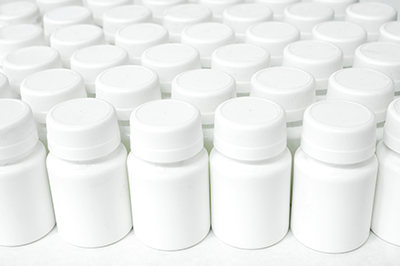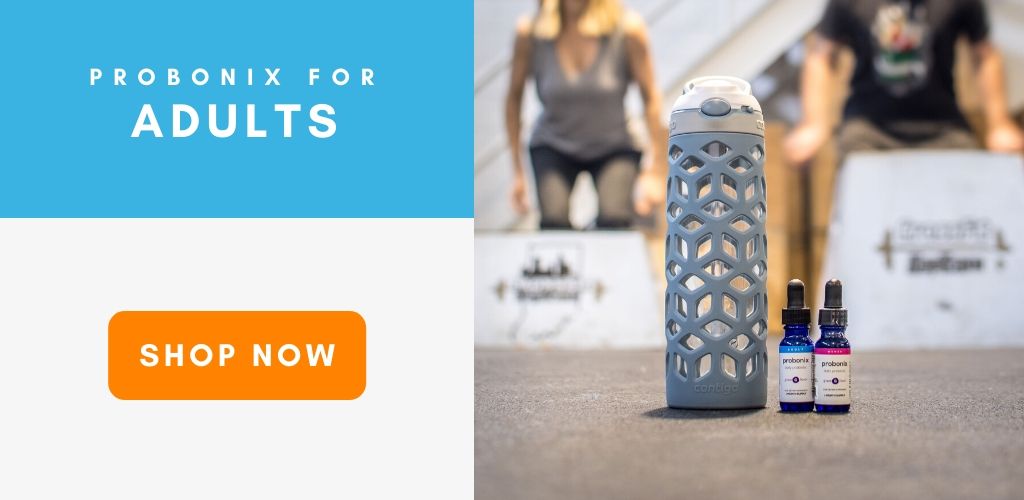 Shopping around for probiotic supplements is tough. There are hundreds of products to choose from, and it’s tough to tell what product to try from a bottle alone. Let’s pretend for a minute that every probiotic you looked at worked exactly as advertised. You’d learn that 30 billion CFUs is the new 20 billion CFUs, since each new brand has one-upped the rest in terms of CFU counts (learn why CFU counts aren’t as important as you think). You’d also learn that all probiotics have amazing survival rates due to state-of-the-art advancements in microencapsulation, spray drying, freeze-drying, phase separation, or other new and exciting scientific techniques.
Shopping around for probiotic supplements is tough. There are hundreds of products to choose from, and it’s tough to tell what product to try from a bottle alone. Let’s pretend for a minute that every probiotic you looked at worked exactly as advertised. You’d learn that 30 billion CFUs is the new 20 billion CFUs, since each new brand has one-upped the rest in terms of CFU counts (learn why CFU counts aren’t as important as you think). You’d also learn that all probiotics have amazing survival rates due to state-of-the-art advancements in microencapsulation, spray drying, freeze-drying, phase separation, or other new and exciting scientific techniques.
But not every probiotic works as advertised. In fact, very few of them do. Research suggests that 80-99% of traditional unprotected live probiotic cells will be killed off before reaching your intestines due to the extreme acidic environment of the stomach and the release of bile from the gallbladder.1 Yet so many probiotics on the market boast survival rates of 80% or more. If you asked those companies why they have such high survival rates, they would probably tell you that their probiotics make it safely through the stomach acid because they have undergone protective measures like freeze drying or microencapsulation. Unfortunately, research indicates that these methods have not significantly increased the number of shelf-stable, viable probiotic bacteria.2
So if the research indicates that most of these “advanced” protective measures aren’t doing what the probiotic companies say they’re doing, what’s with all of the big numbers?
There’s nothing stopping probiotic companies from saying whatever they want about their products
The FDA does not regulate probiotics. This lack of regulation means that buyers have a wide range of options for probiotic products. But it also means that it is all too easy for probiotic companies to make up information about their products and print it as fact.
Like I said, shopping around for probiotic supplements is tough! As a consumer, you really have to know what you’re looking for and know how to sift through all of the marketing fluff. But if so much of the information advertised on these probiotics is exaggerated or just plain wrong, how can you find out what’s true?
Ask for proof!
Any probiotic company worth their salt should have research to prove that their product is able to survive the dangerous journey through the stomach acid. Yet very few probiotics have been scientifically tested. Since probiotics are not formally regulated, the best way for you to know that you’re using a quality product is by asking for proof. Studies on survival rates or research using simulated digestive system models can offer real proof of a product’s effectiveness. Call, email, or use the contact form to request studies that help to prove a product’s effectiveness. If a company is unwilling to share their findings, how do you know that their claims are true? How can you know that they’ve been tested at all?
At Humarian, we have thoroughly tested the effectiveness of Probonix by investing in a survival rate research study. This study, was designed to test the survival rate of Probonix after running it through a simulated digestive system. You can read about the promising results of that study.
1https://pubmed.ncbi.nlm.nih.gov/22698940/
2https://pubmed.ncbi.nlm.nih.gov/12400637/
People who liked this blog also read these:

